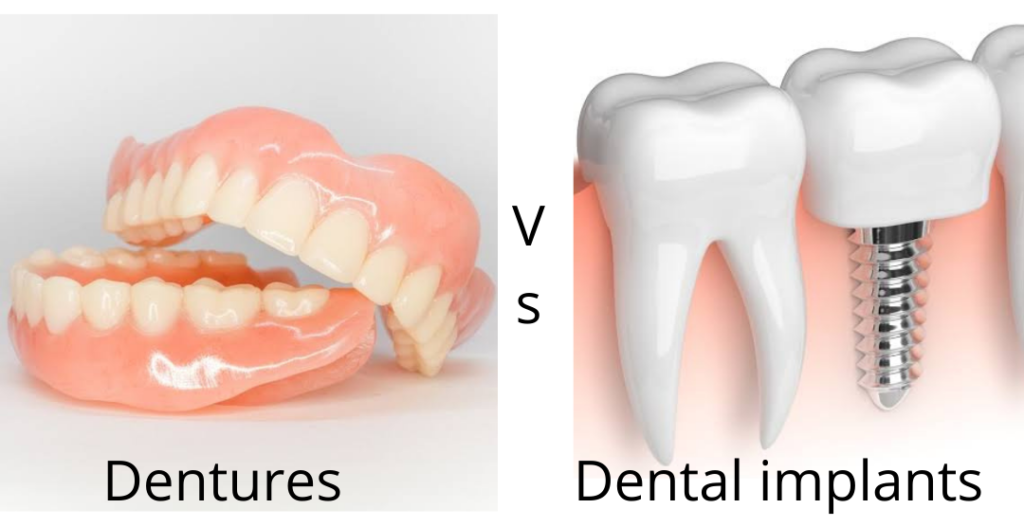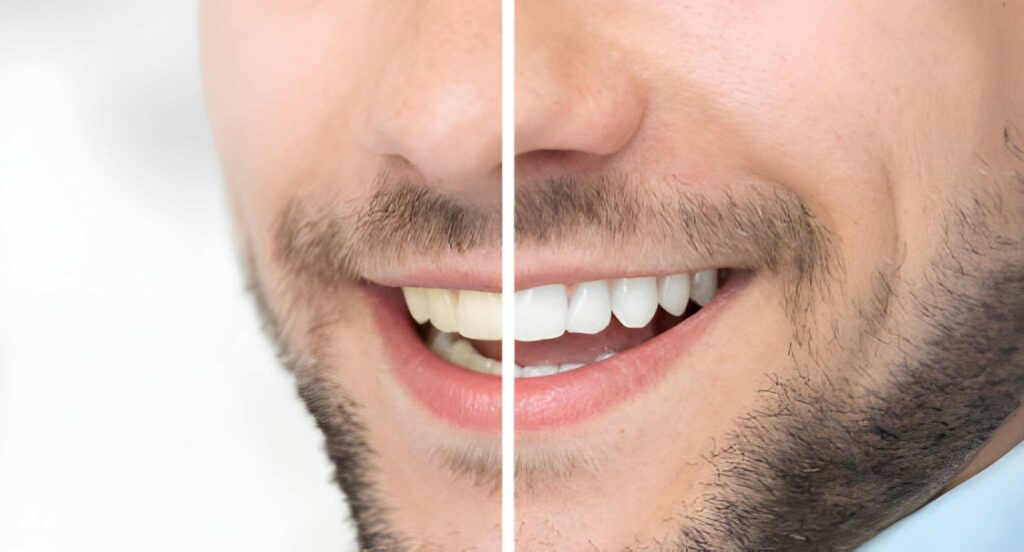When it comes to replacing missing teeth, two main options stand out: dentures and dental implants. Deciding between them depends on various factors like comfort, cost, and longevity. To help you make an informed choice, let’s explore the pros and cons of each option in detail.
Understanding Dentures and Implants
Dentures are removable false teeth that sit over the gums, filling the gaps left by missing teeth. While dentures are a traditional solution, many people now choose to get dental implants in Aberdeen for a more permanent and natural-feeling option. Dental implants provide a stable foundation for replacement teeth and function like natural teeth. Unlike dentures, implants help preserve jawbone density and offer improved comfort, making them a preferred choice for long-term oral health.
How Many Teeth Can a Single Implant Hold?
What Are Dental Implants?
Dental implants, on the other hand, are permanent replacements. They involve placing a metal post, usually made of titanium, directly into the jawbone. Once placed, the implant fuses with the bone over a few months in a process called osseointegration. A crown is then attached to this post to create a new, natural-looking tooth.
Comparing Dentures and Implants
Both options help you chew, speak more clearly, and improve your smile. Yet, they differ in other ways that may affect your choice.
1. Procedure for Dentures vs. Implants
- Dentures: Dentures are created by taking a mould of your gums, and they do not require surgery. Your dentist will check the alignment of your bite to ensure the dentures fit well. You might need a few adjustments to get the best fit, but the overall process is simple and quick.
- Implants: Implants involve a more detailed process. First, a metal post is surgically placed in the jawbone, which acts as the tooth root. The bone fuses with this post over three to six months, securing it in place. After that, a crown is placed on top of the post, completing the replacement tooth.
Does It Hurt to Get Teeth Implants?
2. Cost of Dentures vs. Implants
- Dentures: Dentures are usually less expensive than implants. They may cost a few thousand pounds for a full set, and partial dentures can be even more affordable. Additionally, dental insurance often covers part of the cost.
- Implants: Implants are more costly, with each implant costing thousands per tooth. Although some dental plans may help cover implants, the out-of-pocket costs can still be high. However, if you need a long-lasting solution, implants might be worth the investment.
3. Comfort and Fit
- Dentures: Dentures can feel bulky, especially when first fitted. They rely on adhesives or clasps to stay in place, which might not always be stable. Over time, dentures may need adjustments because your gums can change shape.
- Implants: Implants feel more like natural teeth. Because they are anchored in the jawbone, they don’t move around, and they don’t require adhesives. Many people find implants more comfortable and easier to get used to over time.
4. Maintenance and Care
- Dentures: Dentures need regular cleaning, as well as soaking in a special solution overnight. They should be removed for cleaning after meals, which requires extra time and care.
- Implants: Implants require the same care as natural teeth—brushing twice a day, flossing, and regular dental check-ups. This can make them a simpler option for people with busy lifestyles.
5. Longevity and Durability
- Dentures: Dentures last between 5 and 8 years on average. Over time, they may need replacements or repairs as they wear down and the gums shift.
- Implants: Implants, if well-maintained, can last a lifetime. While the crown may need replacement every 10–15 years, the implant post remains secure and doesn’t need further intervention.
6. Impact on Jawbone and Oral Health
- Dentures: Dentures sit on top of the gums, so they don’t stimulate the jawbone. Without stimulation, the jawbone may gradually shrink, causing a change in facial structure over time.
- Implants: Because implants are rooted in the jawbone, they help prevent bone loss by acting like natural tooth roots. This reduces the risk of jawbone shrinkage and helps keep the facial structure intact.
How Much Does a Single Dental Implant Cost in the UK?
Deciding Between Dentures and Implants
When choosing between dentures and implants, consider these factors:
- Age and Health: Implants are more permanent, making them ideal for younger individuals. However, older adults who want a less invasive option may prefer dentures.
- Bone Density: Implants require enough bone for the post to hold securely. If you don’t have enough bone, a graft can help, but this will add time and cost.
- Budget: Dentures are generally cheaper upfront, though implants might be a better investment if you’re looking for something long-lasting.
- Lifestyle and Daily Routine: If you’re unlikely to follow a detailed cleaning routine, implants might be better as they require less maintenance.
What is the Best Age to Get a Tooth Implant?
Alternatives to Dentures and Implants
Besides dentures and implants, there are other ways to replace missing teeth:
- Dental Bridges: A bridge connects to neighbouring teeth, filling in the gap. This can be a good option for replacing one or two missing teeth.
- Temporary Dentures (Flippers): These removable prostheses offer a temporary fix for one or more missing teeth and are commonly used while waiting for implants.
Each option has its own benefits, so discussing these with your dentist is important.
Key Takeaway: Dentures or Implants?
Dentures and implants each offer benefits, so the choice depends on your priorities. Dentures are affordable, removable, and non-invasive, while implants offer a more natural feel and better support for the jawbone. By weighing up the options and speaking with your dentist, you’ll find the right solution that meets your needs.
Schedule Your Consultation Today!
Choose the Right Solution with Holburn Dental and Implant Centre
At Holburn Dental and Implant Centre, we’re here to help you make the best choice for your smile. Whether you’re considering dentures or implants, our team of skilled professionals will guide you through every option. If you’re looking for a dependable dentist in Aberdeen who prioritises your comfort and dental health, Holburn Dental and Implant Centre is ready to support you with expert advice and personalised care. Schedule a consultation today to discuss the right treatment for your needs and take the first step toward restoring your confident smile.
Frequently Asked Questions
What are the main benefits of dental implants?
Implants provide a permanent, natural-looking solution for missing teeth, supporting jawbone health and facial structure, with minimal maintenance compared to dentures.
Do dentures require special cleaning?
Yes, dentures should be removed daily, brushed, and soaked in a cleaning solution overnight to maintain hygiene and fit.
Can I get implants if I have low bone density?
Low bone density might require a bone graft before implants. A consultation will determine if you’re a candidate or if other options suit you better.
How long do dentures and implants last?
Dentures last 5-8 years, while implants, with proper care, can last a lifetime. Crowns on implants may need replacement after 10–15 years.
Are dentures or implants more affordable?
Dentures generally cost less upfront, while implants require a higher initial investment but may offer better long-term value.
Which option is more comfortable, dentures or implants?
Implants usually feel more natural and secure, as they’re fixed in the jaw, whereas dentures may feel bulky and require adhesive to stay in place.
Can You Lose Your Gums Around Dental Implants?




